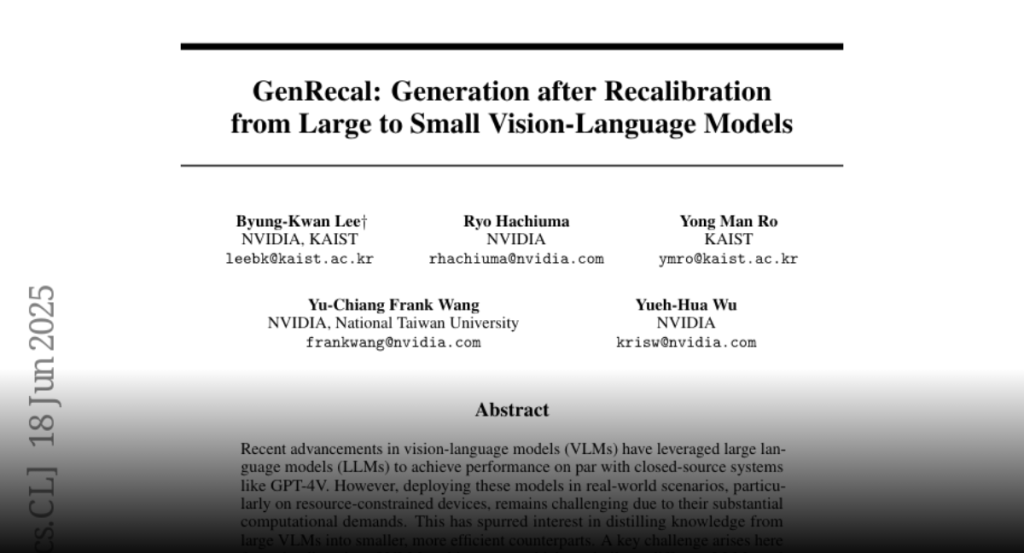GenRecal, a novel distillation framework, improves performance of vision-language models by aligning feature representations across different architectures.
Recent advancements in vision-language models (VLMs) have leveraged large
language models (LLMs) to achieve performance on par with closed-source systems
like GPT-4V. However, deploying these models in real-world scenarios,
particularly on resource-constrained devices, remains challenging due to their
substantial computational demands. This has spurred interest in distilling
knowledge from large VLMs into smaller, more efficient counterparts. A key
challenge arises here from the diversity of VLM architectures, which are built
on different LLMs and employ varying token types-differing in vocabulary size,
token splits, and token index ordering. To address this challenge of limitation
to a specific VLM type, we present Generation after Recalibration (GenRecal), a
novel, general-purpose distillation framework for VLMs. GenRecal incorporates a
Recalibrator that aligns and adapts feature representations between
heterogeneous VLMs, enabling effective knowledge transfer across different
types of VLMs. Through extensive experiments on multiple challenging
benchmarks, we demonstrate that GenRecal significantly improves baseline
performances, eventually outperforming large-scale open- and closed-source
VLMs.

